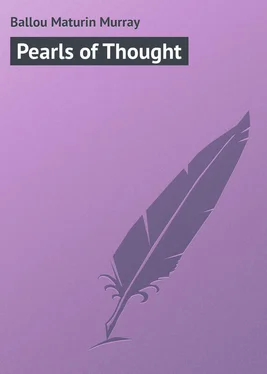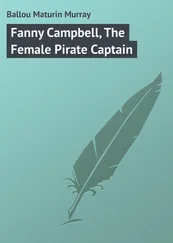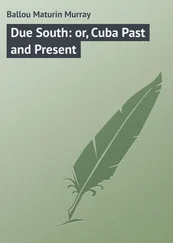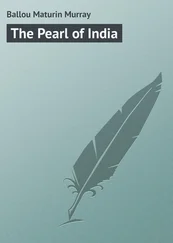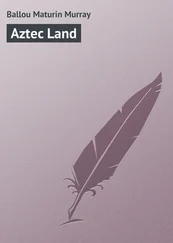Maturin Ballou - Pearls of Thought
Здесь есть возможность читать онлайн «Maturin Ballou - Pearls of Thought» — ознакомительный отрывок электронной книги совершенно бесплатно, а после прочтения отрывка купить полную версию. В некоторых случаях можно слушать аудио, скачать через торрент в формате fb2 и присутствует краткое содержание. Жанр: foreign_prose, foreign_language, на английском языке. Описание произведения, (предисловие) а так же отзывы посетителей доступны на портале библиотеки ЛибКат.
- Название:Pearls of Thought
- Автор:
- Жанр:
- Год:неизвестен
- ISBN:нет данных
- Рейтинг книги:5 / 5. Голосов: 1
-
Избранное:Добавить в избранное
- Отзывы:
-
Ваша оценка:
- 100
- 1
- 2
- 3
- 4
- 5
Pearls of Thought: краткое содержание, описание и аннотация
Предлагаем к чтению аннотацию, описание, краткое содержание или предисловие (зависит от того, что написал сам автор книги «Pearls of Thought»). Если вы не нашли необходимую информацию о книге — напишите в комментариях, мы постараемся отыскать её.
Pearls of Thought — читать онлайн ознакомительный отрывок
Ниже представлен текст книги, разбитый по страницам. Система сохранения места последней прочитанной страницы, позволяет с удобством читать онлайн бесплатно книгу «Pearls of Thought», без необходимости каждый раз заново искать на чём Вы остановились. Поставьте закладку, и сможете в любой момент перейти на страницу, на которой закончили чтение.
Интервал:
Закладка:
Where God hath put exquisite tinge upon the shell washed in the surf, and planted a paradise of bloom in a child's cheek, let us leave it to the owl to hoot, and the frog to croak, and the fault-finder to complain. — De Witt Talmage.
Contrast.– The lustre of diamonds is invigorated by the interposition of darker bodies; the lights of a picture are created by the shades. The highest pleasure which nature has indulged to sensitive perception is that of rest after fatigue. — Johnson.
Controversy.– He that wrestles with us strengthens our nerves and sharpens our skill. Our antagonist is our helper. — Burke.
What Tully says of war may be applied to disputing, – it should be always so managed as to remember that the only true end of it is peace: but generally true disputants are like true sportsmen, – their whole delight is in the pursuit; and a disputant no more cares for the truth than the sportsman for the hare. — Pope.
I am yet apt to think that men find their simple ideas agree, though in discourse they confound one another with different names. — Locke.
A man takes contradiction much more easily than people think, only he will not bear it when violently given, even though it be well-founded. Hearts are flowers; they remain open to the softly-falling dew, but shut up in the violent down-pour of rain. — Richter.
Conversation.– They who have the true taste of conversation enjoy themselves in a communication of each other's excellences, and not in a triumph over their imperfections. — Addison.
It is good to rub and polish our brain against that of others. — Montaigne.
Your reasons at dinner have been sharp and sententious; pleasant without scurrility, witty without affectation, audacious without impudency, learned without opinion, and strange without heresy. — Shakespeare.
No one will ever shine in conversation who thinks of saying fine things; to please one must say many things indifferent, and many very bad. — Francis Lockier.
Conversation warms the mind, enlivens the imagination, and is continually starting fresh game that is immediately pursued and taken, and which would never have occurred in the duller intercourse of epistolary correspondence. — Franklin.
Coquetry.– The most effective coquetry is innocence. — Lamartine.
God created the coquette as soon as he had made the fool. — Victor Hugo.
Affecting to seem unaffected. — Congreve.
Though 'tis pleasant weaving nets, 'tis wiser to make cages. — Moore.
Beautiful tyrant! Fiend angelical! — Shakespeare.
New vows to plight, and plighted vows to break. — Dryden.
Courage.– God holds with the strong. — Mazzini.
Courage is generosity of the highest order, for the brave are prodigal of the most precious things. — Colton.
Courage that grows from constitution often forsakes the man when he has occasion for it; courage which arises from a sense of duty acts in a uniform manner. — Addison.
Courage from hearts, and not from numbers, grows. — Dryden.
As to moral courage, I have very rarely met with the two o'clock in the morning courage . I mean unprepared courage, that which is necessary on an unexpected occasion, and which, in spite of the most unforeseen events, leaves full freedom of judgment and decision. — Napoleon.
Courage our greatest failings does supply. — Waller.
To bear is to conquer our fate. — Campbell.
Moral courage is more worth having than physical; not only because it is a higher virtue, but because the demand for it is more constant. Physical courage is a virtue which is almost always put away in the lumber room. Moral courage is wanted day by day. — Charles Buxton.
It is only in little matters that men are cowards. — William Henry Herbert.
Any coward can fight a battle when he's sure of winning; but give me the man who has pluck to fight when he's sure of losing. — George Eliot.
He who would arrive at fairy land must face the phantoms. — Bulwer-Lytton.
Courtier.– The court is like a palace built of marble; I mean that it is made up of very hard and very polished people. — La Bruyère.
With the people of court the tongue is the artery of their withered life, the spiral-spring and flag-feather of their souls. — Richter.
Covetousness.– Desire of having is the sin of covetousness. — Shakespeare.
The character of covetousness is what a man generally acquires more through some niggardness or ill grace, in little and inconsiderable things, than in expenses of any consequence. — Pope.
The world itself is too small for the covetous. — Seneca.
Cowardice.– At the bottom of a good deal of the bravery that appears in the world there lurks a miserable cowardice. Men will face powder and steel because they cannot face public opinion. — Chapin.
Credulity.– Quick believers need broad shoulders. — George Herbert.
Let us believe what we can and hope for the rest. — De Finod.
When credulity comes from the heart it does no harm to the intellect. — Joubert.
What believer sees a disturbing omission or infelicity? The text, whether of prophet or of poet, expands for whatever we can put into it, and even his bad grammar is sublime. — George Eliot.
Observe your enemies for they first find out your faults. — Antishenes.
Action is generally defective, and proves an abortion without previous contemplation. Contemplation generates, action propagates. — Feltham.
Crime.– If poverty is the mother of crimes, want of sense is the father of them. — Bruyère.
Crimes lead into one another. They who are capable of being forgers are capable of being incendiaries. — Burke.
Criticism.– Solomon says rightly: "The wounds made by a friend are worth more than the caresses of a flatterer." Nevertheless, it is better that the friend wound not at all. — Joseph de Maistre.
The rule in carving holds good as to criticism, – never cut with a knife what you can cut with a spoon. — Charles Buxton.
The critic eye, that microscope of wit. — Pope.
Men have commonly more pleasure in the criticism which hurts, than in that which is innocuous; and are more tolerant of the severity which breaks hearts and ruins fortunes, than of that which falls impotently on the grave. — Ruskin.
Certain critics resemble closely those people who when they would laugh show ugly teeth. — Joubert.
Every one is eagle-eyed to see another's faults and his deformity. — Dryden.
For I am nothing if not critical. — Shakespeare.
He who stabs you in the dark with a pen would do the same with a penknife, were he equally safe from detection and the law. — Quintilian.
Silence is the severest criticism. — Charles Buxton.
All the other powers of literature are coy and haughty, they must be long courted, and at last are not always gained; but criticism is a goddess easy of access and forward of advance, she will meet the slow and encourage the timorous. The want of meaning she supplies with words, and the want of spirit she recompenses with malignity. — Johnson.
It is a barren kind of criticism which tells you what a thing is not. — Rufus Griswold.
Читать дальшеИнтервал:
Закладка:
Похожие книги на «Pearls of Thought»
Представляем Вашему вниманию похожие книги на «Pearls of Thought» списком для выбора. Мы отобрали схожую по названию и смыслу литературу в надежде предоставить читателям больше вариантов отыскать новые, интересные, ещё непрочитанные произведения.
Обсуждение, отзывы о книге «Pearls of Thought» и просто собственные мнения читателей. Оставьте ваши комментарии, напишите, что Вы думаете о произведении, его смысле или главных героях. Укажите что конкретно понравилось, а что нет, и почему Вы так считаете.
